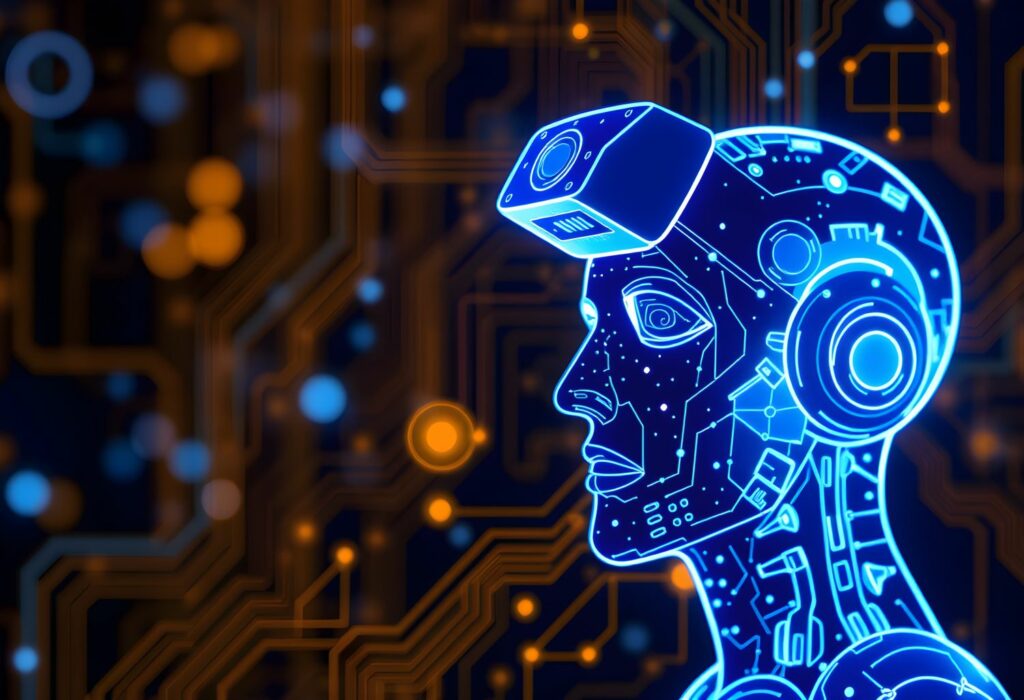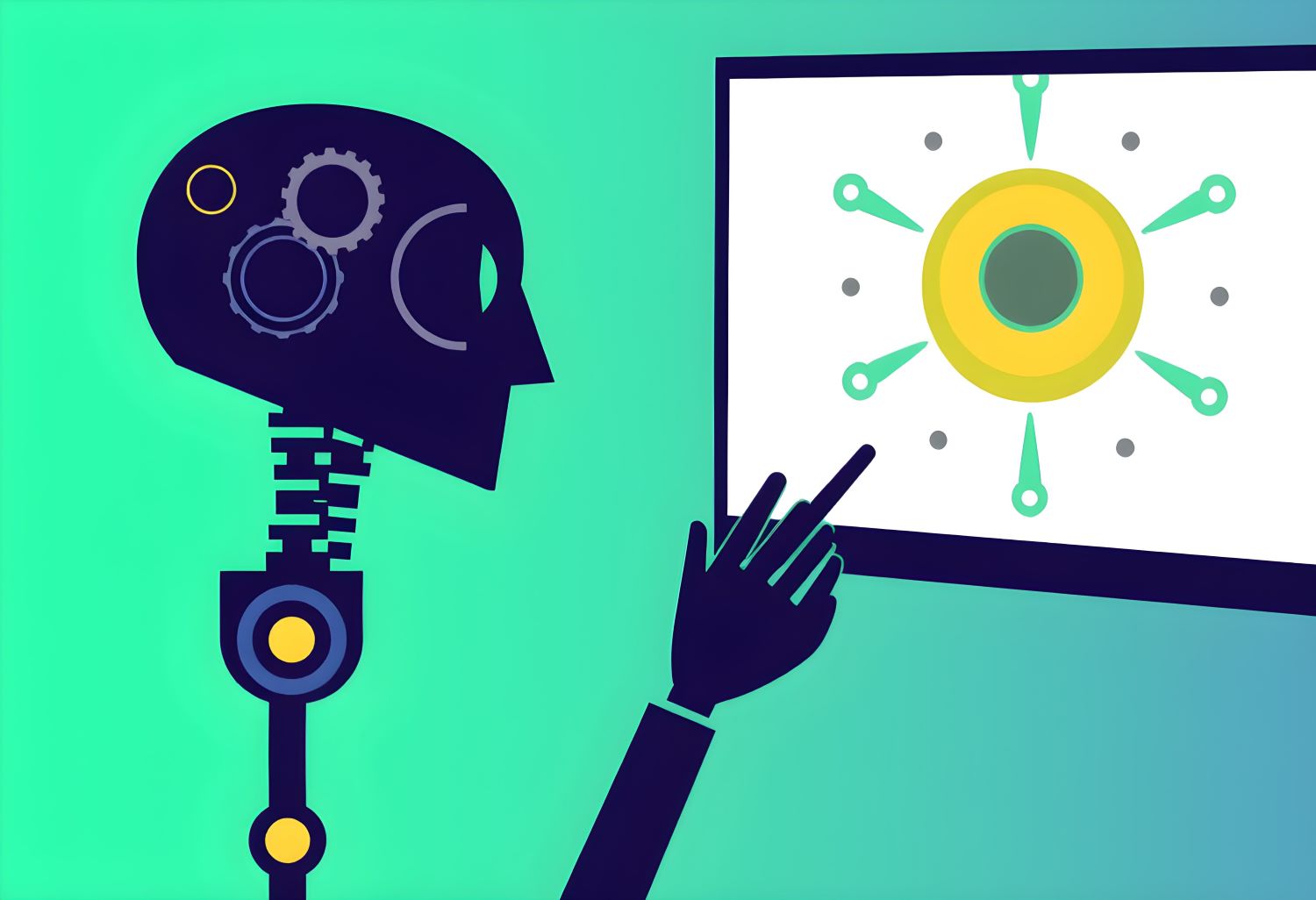AI as a Catalyst for a New Kind of Career Development
It’s tempting to see AI as a mere tool or, at worst, a competitor. However, AI is more than a productivity booster; it represents a paradigm shift in how we approach work, learning, and personal growth. As AI tools grow more sophisticated, the smartest way to approach this new landscape is not by fearing or ignoring AI, but by thoughtfully leveraging AI for career growth and development.
Today, AI can amplify our skills, open new pathways, and provide insights beyond what was previously possible (read about the future of various careers here). Viewing AI as a collaborator can help us grow not just in skills, but in our approach to problem-solving, creativity, and adaptability. As the article on top future-proof skills for a post-AI world explains, developing future-proof skills like abstract thinking and emotional intelligence enables us to navigate this shift thoughtfully. By learning to strategically leverage AI for career growth and development, we can thrive in a world where adaptability and resilience are the most valued professional assets.
Rethinking Career Growth in an AI-Enhanced World
The Shift from Routine Mastery to Strategic Integration
As AI automates routine tasks, career growth shifts from acquiring specific skills to mastering how to direct and integrate technology within our work. We’re moving from repetitive task mastery toward strategic mastery—knowing when, where, and how to apply AI insights effectively. Growth today means asking the right questions, contextualizing data, and adapting AI tools to unique challenges within our fields. In this new context, your career growth hinges on your ability to shape how AI serves human goals.
The Power of Abstraction in the AI Age
AI’s advancement allows it to handle technical precision, but humans bring an invaluable quality to the table: abstract thinking. As the boundaries of what AI can do expand, our growth as professionals will increasingly center around empathy, big-picture thinking, and creating frameworks that bring human purpose to AI’s outputs. Thus, career growth becomes less about perfecting technical skills and more about developing a mindset that embraces strategic inquiry and creative exploration.
Practical and Strategic Ways to Leverage AI for Career Advancement
Enhancing Productivity and Efficiency
AI-driven tools offer much more than automation. While they can streamline scheduling, manage tasks, and analyze data, the true value lies in how they free us up to engage in higher-order thinking. When you integrate AI-powered decision-making tools, like predictive analytics and data visualization, you unlock the potential to make more informed decisions. Moving beyond efficiency, these tools empower you to approach decision-making with a deeper, data-backed perspective, allowing you to guide AI with a purpose aligned with human-centered outcomes.
Collaborating with AI to Drive Creativity
AI is often seen as a replacement for creativity, but in reality, it can serve as a collaborative partner, expanding what’s possible. For example, AI can brainstorm, draft, and design concepts, helping you approach creative tasks with new perspectives. Creative AI platforms can generate fresh ideas that you can build upon, turning creative work into a dynamic, interactive process. By positioning AI as a co-creator, we can push the boundaries of innovation, using its input as a stepping stone for truly unique work. This approach to AI, explored further in our Top Skills article, encourages a flexible, abstract mindset that is increasingly essential in a collaborative, AI-enhanced future.
Harnessing AI for Continuous Learning and Skill Development
AI-driven learning platforms offer unprecedented ways to grow and refine skills. Unlike traditional learning, AI adapts to your unique pace and needs, providing a customized educational experience that evolves as you do. Consider platforms like Lemmaa, which integrate AI mentorship to help you identify strengths and areas for growth, supporting a continuous learning journey tailored to your goals. This adaptive approach not only helps you keep up with industry trends but also ensures you’re developing a resilient mindset that prepares you for future shifts.
Leveraging AI in Common Careers
Leveraging AI using these practical and strategic ways can help you immediately spot use cases for AI right this moment. There’s plenty of content on the web that share examples of such use cases, so we won’t dive into that. Instead, we will share some examples of common jobs that can transform in the future (perhaps in the near future) with the advent of AGI which is much more capable, accurate, and intelligent. Here are 7 examples of how AGI can be leveraged to transform careers:
1. Medical Doctor ➔ Human-AI Healthcare Collaborator
- Futuristic Role: With AGI capable of diagnosing conditions and even suggesting treatments with incredible precision, the role of a doctor could shift from direct diagnosis to a collaborative role where doctors work alongside AGI systems to interpret findings, provide empathetic care, and guide patients through their treatment options.
- New Responsibilities: Doctors might serve as “health interpreters,” translating AGI-driven insights into actionable steps personalized for each patient. They could also focus on the emotional and psychological aspects of patient care, areas where AGI lacks human understanding.
- How It Might Look: Doctors’ offices could be augmented with AGI-powered diagnostic hubs, where patients receive immediate diagnostic insights. Doctors would then meet with patients to explain results and create individualized care plans that blend AGI recommendations with human insight and empathy.
2. Teacher ➔ AI-Assisted Learning Facilitator
- Futuristic Role: In a world where AGI can personalize learning for each student and manage lesson delivery, the teacher’s role could become more about guidance, mentorship, and social-emotional learning support. Rather than delivering content, teachers would focus on fostering critical thinking, creativity, and resilience in students.
- New Responsibilities: Teachers could become “learning architects,” designing collaborative projects, real-world applications, and problem-solving exercises that supplement AGI-driven lessons. They’d also monitor students’ social-emotional development and help them build abstract thinking skills.
- How It Might Look: Classrooms might be reimagined as collaborative hubs where students work on projects with each other, using AGI as a resource. Teachers would guide discussions, challenge students to think critically about AGI-generated information, and support individual learning journeys in a way that AGI cannot replicate.
3. Financial Analyst ➔ AGI-Enhanced Financial Strategist
- Futuristic Role: With AGI capable of analyzing vast datasets, predicting market trends, and recommending investment strategies, the financial analyst role could evolve into a strategic advisor position. Analysts would work alongside AGI to design complex financial strategies, focusing on ethical considerations, sustainability, and client-specific goals.
- New Responsibilities: Financial analysts might act as “financial ethics officers,” helping clients understand the broader implications of AGI-recommended investments and advising on strategies that balance profit with ethical impact.
- How It Might Look: AGI systems could provide real-time insights into market shifts, regulatory changes, and risk factors. Analysts would then meet with clients, interpreting AGI insights within the context of each client’s values and objectives, balancing profit with ethical considerations.
4. Journalist ➔ AGI-Driven Investigative Curator
- Futuristic Role: With AGI capable of instantly aggregating information, fact-checking, and analyzing global news events, the journalist’s role could shift to one of editorial oversight and story curation. Journalists would focus on identifying deeper narratives, exploring ethical implications, and bringing human perspectives to automated reporting.
- New Responsibilities: Journalists might become “narrative analysts,” working with AGI to highlight stories that reflect important societal themes and human experiences. They could focus on investigative journalism, fact-checking AGI’s interpretations, and bringing an empathetic angle to stories.
- How It Might Look: Newsrooms might be staffed by AGI systems that automatically generate news briefs and updates. Journalists would act as curators, focusing on in-depth stories, human interest pieces, and investigative reports that require nuanced human insight and empathy.
5. Project Manager ➔ Human-AGI Project Architect
- Futuristic Role: With AGI capable of planning, scheduling, and tracking project tasks with precision, project managers would become architects of human-AI collaboration. They’d coordinate between human teams and AGI, overseeing complex projects and ensuring that human insights drive AGI’s execution.
- New Responsibilities: Project managers would act as “collaboration facilitators,” designing workflows that optimize human and AGI strengths. They’d focus on creating synergy, ensuring that AGI-driven tasks align with human goals and navigating any ethical considerations.
- How It Might Look: Project management software could integrate AGI that monitors task progress, predicts bottlenecks, and adjusts timelines in real-time. Project managers would oversee these adjustments, integrating human feedback and making final decisions on project direction.
6. Lawyer ➔ Legal and Ethical AI Integrator
- Futuristic Role: In a future where AGI can analyze legal cases, draft documents, and even simulate court outcomes, the role of a lawyer might evolve to focus on interpreting AGI-generated legal insights, handling complex ethical issues, and ensuring AI adheres to legal standards.
- New Responsibilities: Lawyers could become “legal-ethical advisors,” specializing in assessing the societal impacts of AGI recommendations, interpreting complex AI-driven legal simulations, and managing human-AI collaborations in legal processes.
- How It Might Look: Law firms might have AGI systems capable of drafting briefs, researching precedent, and predicting outcomes. Lawyers would act as interpreters, evaluating AGI recommendations, considering ethical implications, and advising clients on the best paths forward.
7. Customer Service Representative ➔ AGI-Powered Customer Engagement Specialist
- Futuristic Role: With AGI handling routine inquiries, the customer service role could evolve to focus on complex problem-solving, conflict resolution, and managing nuanced customer interactions. Representatives would focus on cases requiring human empathy and adaptability.
- New Responsibilities: Customer service reps could be “engagement specialists,” handling high-stakes situations, interpreting AGI insights about customer preferences, and ensuring the brand’s values are reflected in interactions.
- How It Might Look: AGI-driven systems would field basic inquiries and gather customer data, while customer engagement specialists handle escalations, personalize interactions, and resolve conflicts with human empathy.
Building AI-Driven Skills for Long-Term Career Security
It might be scary to think about the possibilities mentioned above as the changes are drastic enough to require much less human intervention, traditional knowledge, and educational training; undermining what we’ve strived for, in some cases, for the better parts of our lives. It is also almost implied that a lower number of individuals will be needed to achieve the same performance if not better, with the integration of AGI. Thus, it is important to be prepared to be able to leverage AI for career growth and to take on those jobs when the time comes. Here are some ways you can prepare yourself for the modern post-AI era:
Cultivating Data Literacy and Abstract Thinking
In a world where AI often operates with large data sets and complex algorithms, having a foundational level of data literacy allows you to understand and question AI outputs effectively. This skill enables you to interpret data patterns and identify meaningful insights, helping you leverage AI’s capabilities to their fullest potential. Abstract thinking complements this skill by allowing you to move beyond data points and see the broader implications of AI’s findings. By honing these abilities, you’ll be able to turn data into strategic action, guiding AI applications toward meaningful goals.
Adapting to AI Across Different Fields
The way AI integrates into each industry varies significantly, from AI-driven diagnostics in healthcare to predictive analytics in finance. Learning how your field uses AI and understanding the specific tools it employs gives you an edge in adapting to shifts. For example, if you work in marketing, familiarizing yourself with AI-powered consumer analysis can help you make better-targeted decisions. This flexibility will become increasingly valuable as industries embrace new AI tools that continuously evolve.
Understanding Core AI Concepts
Having a general understanding of AI concepts—such as large language models, machine learning, natural language processing, and data analytics—gives you more than just technical insight; it fosters a stronger connection with the technology you use daily. This foundational knowledge lets you work with AI tools more effectively, think of creative ways to integrate more closely with AI, and know the limitations and possibilities, creating a smoother workflow and enhancing collaboration. Understanding AI on a conceptual level makes it easier to grasp AI’s strengths and limitations, positioning you as a valuable, adaptable professional.
Conclusion
AI isn’t just a tool to be managed; it’s a collaborator that has the potential to expand our capabilities, enabling us to approach career growth in entirely new ways. By thinking of AI as a partner that complements human insight, creativity, and decision-making, we can redefine growth as a continuous, adaptable journey—one where AI enhances our ability to create, innovate, and impact the world around us.
If you’re looking to cultivate these skills, explore resources like Lemmaa, where project-based learning and AI mentorship create a tailored growth experience that adapts with you. Combining structured AI tools with your own curiosity and resilience will prepare you to navigate an AI-driven future with confidence.
Massih Medi is a physicist-turned-entrepreneur and founder of Lemma Alpha, an AI-powered education platform equipping learners with future-proof skills for the post-AI era. He’s focused on education designed for the artificial super intelligence era, providing students with AI-driven critical skills training tailored for the evolving job market. He also leads D&C Innovation, where he guides software engineering teams in building and maintaining applications for tech startups, leveraging his scientific background to design and architect complex digital solutions.



